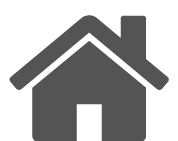Healthcare System
The Dutch healthcare system can be very confusing if you are used to something else in your home country. Hence, we at International Health Centre Rotterdam want to help you understand it better and adapt.
Insurance
The first step is registering yourself at the municipality, so you get a BSN number. Those working in the Netherlands are then obligated to take out public health insurance (basisverzekering). You must arrange this within 4 months and it will be backdated to the day of your arrival. For more information about the public health insurance, please go to this page.
If you are an international student without a paid internship or job, you do not qualify for this Basisverzekering. You can either keep using your European Health Insurance Card, or take out private insurance such as InsureToStudy.
General practitioner
The GPs in the Netherlands play an important role. They are the first point of contact for medical issues, whether it’s an emergency or not. If necessary, they can refer you to any hospital in The Netherlands.
Your GP also coordinates your healthcare as a whole. They are responsible for keeping your medical records and will receive letters from the hospital if you do go to a specialist.
It is advisable to register with a practice as soon as possible, instead of waiting till you become ill.
If you are unable to register anywhere, you can be seen as a casual patient. Between 8 AM and 5 PM, day practices have duty of care and if it’s urgent, you can call any practice near you. International Health Centre offers non-urgent casual patient appointments here. For emergencies after work hours, you can contact the Huisartsenpost, which is located inside the Sint Franciscus Hospital.
General principles
Equality: In a lot of countries, you can choose either private or public healthcare depending on how much you can or want to spend. In The Netherlands, this does not matter when it comes to healthcare providers. They all charge everyone the exact same amount, so there is no possibility of preferential treatment. Health insurers also can’t deny you basic coverage based on age, gender or medical history. Everyone receives the same type and quality of treatment, regardless of social status or income.
Solidarity: Healthcare is funded by all citizens through income tax and mandatory health insurance fees. Those who cannot afford the mandatory health insurance, such as students or those with a low income, can apply for benefits to pay for the health insurance. If you want care without any medical indication, such as a preventive MRI scan, you pay for this out of pocket, in order to not strain the system. This is to ensure access to care for everyone.
Freedom of choice: You are always free to choose your healthcare provider. This is why GPs can only refuse your registration if they are full, if you live too far or if you don’t have Dutch health insurance. Most of the time you can also choose which specialist and which hospital you want to visit, although waiting times can vary. Check with your health insurance before selecting a specialist healthcare provider if they are contracted.
Use of medication – only paracetamol?
We hear a lot that Dutch GPs always send you home with paracetamol. This is not true, but Dutch doctors do approach medication differently than some other countries. For example, in some countries they prescribe antibiotics for any kind of infection. However, medication can have harmful side-effects; the over-use of antibiotics can lead to intestinal issues because it also affects the ‘good’ bacteria. Hence, the wait-and-see approach is often applied for minor illnesses like the flu, because the body can often solve these on its own. So yes, a Dutch GP will send you home with paracetamol if you come for a common cold or flu.
Do not worry, the Dutch GP will prescribe medication if it’s necessary and proven to be effective.
Referral letters
If the GP cannot help you within their expertise, they will refer you to a specialist. You can do your own research and tell your GP which hospital you would like to go to, or let them choose whichever hospital has the shortest waiting time.
The following healthcare providers do not require a specialist: Physiotherapists, midwives, dieticians, opticians, audiologists, dentists, holistic therapists.
Useful tip
Get a Dutch phone number. Especially now during this pandemic, a lot of consulations are conducted by phone.
A referral to a specialist also requires a phone number so the hospital can contact you to book an appointment or relay other information.
You can acquire a Dutch phone number by buying a cheap pre-paid sim card at any supermarket or online. You can use that to receive calls and continue using your phone number from back home for everything else.
Useful links
GPinfo.nl – trustworthy information about health and diseases, made by Dutch doctors.
Thuisarts – the Dutch version (more topics available)
Zorgwijzer – comparing different Dutch health insurances.
Expat Centre – specialised one stop shop for expats in Rotterdam

